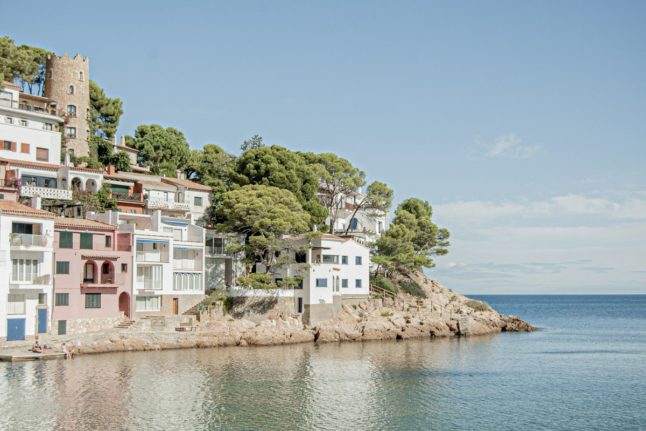On Monday April 8th, Spanish Prime Minister Pedro Sánchez announced that it will soon no longer be possible for foreigners to obtain Spanish residency by buying a €500,000 property in the country.
The latest government figures suggest that 14,576 wealthy non-EU nationals have obtained the golden visa by buying a half-a-million-euros home since the scheme launched in 2023, with a particularly big surge in visas granted over the last two years, which “raised the alarm”.
The government says it’s about reducing price speculation in the property market but for the opposition it’s purely a political “smokescreen” at a time of rising property and rent prices that are affecting locals but not higher-earning foreigners in Spain.
Q&A: When and why is Spain axing the golden visa?
“It won’t have the desired effect of freeing up property because golden visa holders are not competing usually at the prices where locals are being priced out; the culprits are Airbnb-style rentals.” Graham Hunt, who runs Valencia Property and has helped numerous clients process their golden visas, told The Local Spain.
“Most golden visa buyers we have had to buy a place to live in and not as a speculative investment. A few buy under the limit then complement it with a second rental property or garage space to make up the €500,000.”
Although a €500,000 property is certainly not within reach for most foreigners in Spain, the end of the golden visa scheme as we’ve known it means there are fewer visa choices for foreigners.
For Hunt, “a simple reform requiring golden visa residents to live for more than six months per year in Spain thus becoming tax residents would have sufficed to make it more lucrative for the government, while at the same time closing some of the loopholes of origin of funds which may have been a problem with Russian and Chinese applicants”.
The golden visa is the only visa that doesn’t require foreign residents to become tax residents in Spain, nor spend a minimum amount of time in Spain to keep residency (1 day a year to renew).
Maryem Essadik, an immigration lawyer for international law firm Marfour, told The Local: “this visa has brought a lot of foreign capital to Spain and the new measure stops the arrival of foreigners with great economic means and a high level of consumption”.
So what now for those who already have a golden visa and those in the process of applying for it? Is it too late to get Spain’s golden visa at the last minute? And what other Spanish visas could high-income third-country nationals opt for?
What does this mean for people who already have the golden visa?
“Those who currently hold a golden visa will NOT be affected,” Gerard Martínez of immigration law firm Balcells Group stressed to The Local Spain.
“They will keep their residency card and this measure will not affect them”.
Immigration lawyer Maryem Essadik added that “the residency authorisation of existing golden visa holders through investment in real estate is a guaranteed right and the new law cannot be more unfavourable than the terms applied to them at the time”.
Essadik told The Local that a clear and recent example of this happening is when “UK nationals legally residing in Spain when the UK left the EU were not affected, even though many had to carry out exchanges of their permits”.
Does anything change for people in the process of applying for Spain’s golden visa?
“In principle, applications being processed are assessed according to the law that was in force, unless retroactive measures are established by the new law,” Essadik states.
“It’s too early to go into detail, we have to wait for the law to be approved.”
Gerard Martínez of Balcells is more optimistic: “Those in the process of applying should not be affected either. The government will define a deadline until which this visa can be obtained, so those in the process can have enough time.”
Is it too late to buy a €500,000 Spanish home and apply for the golden visa?
The golden visa was known as being perhaps the fastest residency authorisation to obtain in Spain – between 10 and 20 days – but of course you also have to factor in that choosing and purchasing a €500,000 property can take time.
“We still need to understand the timings the government sets for its modification,” Martínez admits, “but right now it is not too late, so now is the best time to obtain it, as we don’t know if in x months that option will still be available.”
According to Spanish daily El Periódico de España, the intention of Spain’s Housing Minister is to cancel the golden visa scheme as quickly as possible and to fast-track this process by attaching the legal amendment to another law, the upcoming modification of the Spanish Land Law (Ley de Suelo) which has already overcome some legal hurdles.
It’s worth noting however that the golden visa amendment isn’t a done deal yet and that legislative changes in Spain tend to take longer than expected.
What are the alternatives to Spain’s golden visa?
“It depends on the circumstances of each person,” Hunt of Valencia Property told The Local Spain.
“But the easiest one if someone doesn’t need to work is the non-lucrative visa (NLV), and if they do need to work then they need to get themselves in a position to apply for the digital nomad visa (DNV).”
Martínez of Balcells Group agreed that the NLV and the DNV are two of the best choices, but added another important alternative: “the golden visa’s other investment categories will still work, so those higher net-worth individuals may still obtain residency by investing in Spanish companies or in Spanish debt”.
Although this is yet to be 100 percent confirmed, it does appear that the only category of the golden visa scheme that is set to be removed is that relating to property, as this is what the government has deemed problematic in terms of price speculation.
Therefore, investing €1 million in shares in Spanish companies, or €2 million in government bonds, or transferring €1 million to a Spanish bank account, will still be likely to obtain Spanish residency through the golden visa for the time being.
READ ALSO: What the end of Spain’s golden visa means for foreigners
How do the non-lucrative visa and the digital nomad visa compare to the golden visa?
Spain’s golden visa has been considered the ‘easiest’ Spanish residency visa to obtain because it doesn’t take long to be processed, and as mentioned earlier it didn’t have the requirement of becoming a Spanish tax resident and no risk of losing residency for being out of the country (1 day a year).
However, the non-lucrative visa and the digital nomad visa are two worthy alternatives for people with plenty of savings or high incomes.
The non-lucrative visa doesn’t allow you to work but gives you Spanish residency if you can prove €28,000 in funds to cover your costs for the year, and €7,200 for every extra family member included on the residency application, as well as providing comprehensive medical insurance.
Proving financial means and medical cover are also required for the golden visa.
Other perks of the NLV include the right to invest in Spain, freedom of movement around the Schengen Zone, a lower financial burden than the golden visa and the option of swapping over to a work of self-employed visa.
If you want to work from Spain, the digital nomad visa requires €2,646 in monthly earnings to be eligible, it enables you to live in the country for five years, you can also bring family members with and your partner has the right to work as well, among other perks such as freedom of movement around Schengen nations.
Non-lucrative vs digital nomad visa: Which one should you choose to move to Spain?



 Please whitelist us to continue reading.
Please whitelist us to continue reading.
If you have a Golden Visa based on purchase of real estate, will you be able to renew it when it expires after its original issuance/